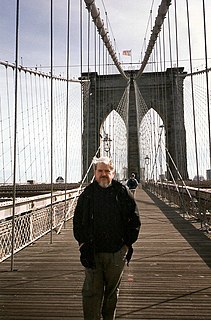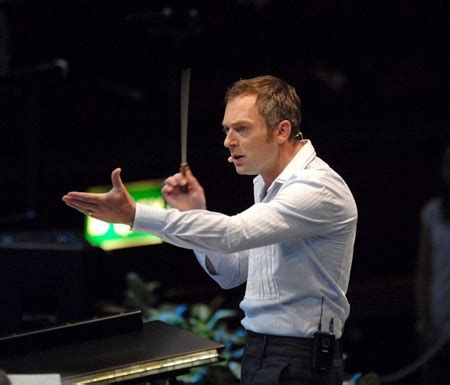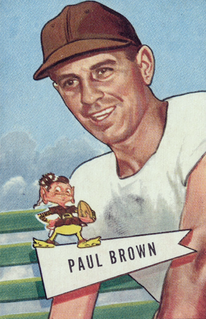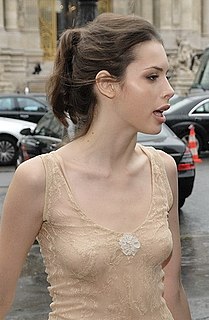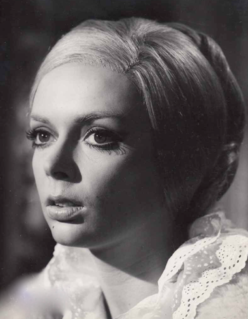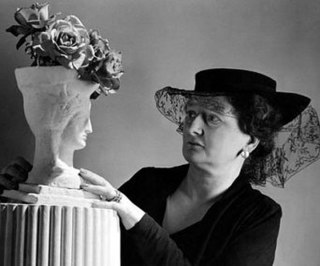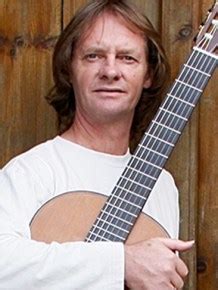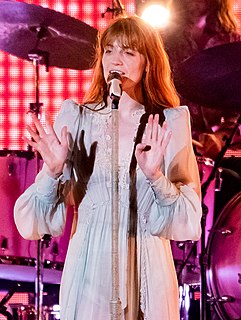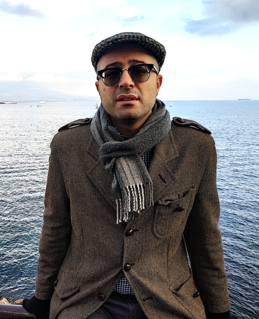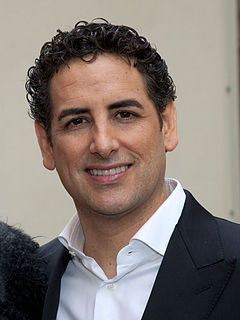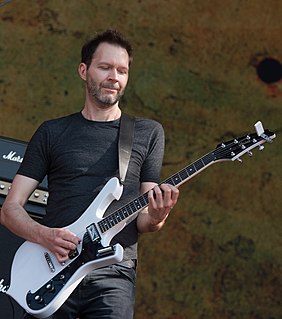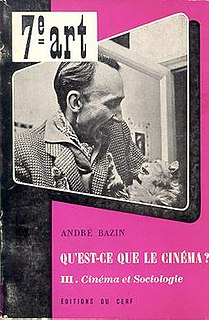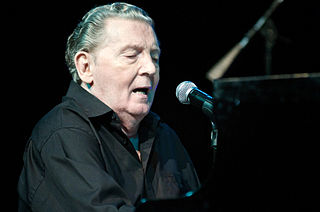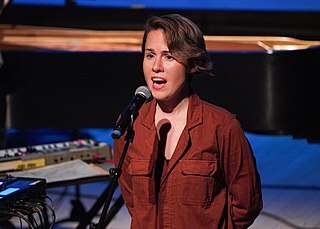Top 108 Baroque Quotes & Sayings - Page 2
Explore popular Baroque quotes.
Last updated on April 16, 2025.
Rather than teasing the buyers, we may blame the society in which they lived for setting up a situation where the purchase of ornate cabinets felt psychologically necessary and rewarding, where respect was dependent on baroque displays. Rather than a tale of greed, the history of luxury could more accurately be read as a record of emotional trauma. It is the legacy of those who have felt pressured by the disdain of others to add an extraordinary amount to their bare selves in order to signal that they too may lay a claim to love.
It is the Late city that first defies the land, contradicts Nature in the lines of its silhouette, denies all Nature. It wants to be something different from and higher than Nature. These high-pitched gables, these Baroque cupolas, spires, and pinnacles, neither are, nor desire to be, related with anything in Nature. And then begins the gigantic megalopolis, the city-as-world, which suffers nothing beside itself and sets about annihilating the country picture.
Post-Modern space is historically specific, rooted in conventions, unlimited or ambiguous in zoning and irrational or transformational in its relation of parts to whole……. …skew or distorted spaces, created by sharp angles which exaggerate perspective…. …always keep a mental coordinate system no matter how free- form and baroque they become. The reference plane is always an implied frontality, and the route through the building or the curvilinear elements then relate to this conceptual cage
One person looks around and sees a universe created by a god who watches over its long unfurling, marking the fall of sparrows and listening to the prayers of his finest creation. Another person believes that life, in all its baroque complexity, is a chemical aberration that will briefly decorate the surface of a ball of rock spinning somewhere among a billion galaxies. And the two of them could talk for hours and find no great difference between one another, for neither set of beliefs make us kinder or wiser.
What is at the higher levels of meaning consciousness is like a hyperspace in which each point is equidistant from the other and where 'the center is everywhere and the circumference is nowhere'? The mythologies of the occult seem like baroque music: there is an overall similar quality of sound and movement, but, upon examination, each piece of music is unique; Vivaldi and Scarlatti are similar and different.
I had the right amount of detachment to go back and really appreciate what I had grown up with. There’s a particular style that is very Peru that you don’t see anywhere else; it’s got so many different imprints. When you mix Incan minimalism with the heavy, ornate Spanish Baroque, it is very interesting.
But where only a free play of our presentational powers is to be sustained, as in the case of pleasure gardens, room decoration, all sorts of useful utensils, and so on, any regularity that has an air of constraint is [to be] avoided as much as possible. That is why the English taste in gardens, or the baroque taste in furniture, carries the imagination's freedom very far, even to the verge of the grotesque, because it is precisely this divorce from any constraint of a rule that the case is posited where taste can show its greatest perfection in designs made by the imagination.
The way Fatboy Slim layers motifs is the same as 18th-century baroque counterpoint. You have an idea, then you have an answer to the idea in another voice, then you have a counter idea accompanying the original idea, and you build up your texture like that. I'm really into Kruder and Dorfmeister at the moment, and they do the same thing.
Do whatever you please, follow your own star; be original if you want to be and don’t if you don’t want to be. Just be natural and gay and light-hearted and pretty and simple and overflowing and general and baroque and bare and austere and stylised and wild and daring and conservative, and learn and learn and learn. Open your mind to every form of beauty.
Several factors besides skill are more significant in professional writers than in most amateurs. One is love of the surface level of language: the sound of it; the taste of it on the tongue; what it can be made to do in virtuosic passages that exist only for their own sake, like cadenzas in baroque concerti. Writers in love with their tools are not unlike surgeons obsessed with their scalpels, or Arctic sled racers who sleep among their dogs even when they don't have to.
I deliberately disregarded the right angle and rationalist architecture designed with ruler and square to boldly enter the world of curves and straight lines offered by reinforced concrete... This deliberate protest arose from the environment in which I lived, with its white beaches, its huge mountains, its old baroque churches, and the beautiful suntanned women.
My visual landscape as a child was the inside of a lot of these old churches. And the Baroque drama of the things was what I was first engaging with artwise. I'm much more attracted to the aesthetic of religious iconography than the actual religious side. The passion and the blood and the violence and the gaudy side of it I find really fascinating.
I'm not able to completely escape naturalism. It's very difficult to escape from naturalism without being too dry. That's what I try to do in my cinema - escape naturalism and do films that are, at the same time, realistic but have a lot of fantasy. It's very difficult in cinema to get away from what life is about, from real life. The way the actors work has to be realistic - you can't do Baroque acting - so it's very complicated. And, we're human beings, so we're not perfect. I'm trying to do something different.
The Humbling is not vintage Roth, despite its compelling premise. The bizarre series of episodes -- mostly sexual encounters with women -- which make up this short novel don't play to Roth's strengths. (...) The Humbling disappoints because it avoids these universal implications, and veers off into a baroque world of the unique and fantastic, never quite deigning to make its world concrete or to give its characters the honour of an independent will.
I think, you know, for someone who does play, let's say, old music or, you know, Baroque music or Renaissance music - and you know, and I do play a lot of that, obviously - engaging with new composers, engaging with young composers, is really exciting because it makes me look at people of the past in a very different way that they are also living, that there was a lot of subjectivity in the decisions that they were making.
I think what inspires me is in a constant state of flux...it's easier to stick to photographers and perhaps cinematographers, though the great medieval, Mannerist, and Baroque painters of Italian, Spanish, Flemish, and German origin are a constant source of inspiration, along with select modernists like Dali.
Architecture traditionally has been the slowest of art forms. It was not unusual for great cathedrals to take centuries to complete, with stylistic changes from Romanesque to Gothic or Renaissance to Baroque as common as the addition of chapels or spires. But because the function remained the same, the form could be flexible and its growth organic.
I try to find a style that matches the book. In the Baroque Cycle, I got infected with the prose style of the late 17th and early 18th centuries, which is my favorite era. It's recent enough that it is easy to read - easier than Elizabethan English - but it's pre-Victorian and so doesn't have the pomposity that is often a problem with 19th-century English prose. It is earthy and direct and frequently hilarious.
The merry-go-round was running, yes, but... It was running backward. The small calliope inside the carousel machinery rattle-snapped its nervous-stallion shivering drums, clashed its harvest-moon cymbals, toothed its castanets, and throatily choked and sobbed its reeds, whistles, and baroque flutes.
So a lot of what you see in the Baroque Cycle is me wanting to be one of those guys. In the case of Anathem, I needed something that was more formal, less flashy, as if it had been translated from the classical language of another planet, but enlivened with slang terms that a teenage narrator would enjoy throwing around.
We're living in a time when pretty much anything can happen in the music world. There are a lot of musical languages in which people work. When I think of common practice I think back to the time I was studying the flute, where I learned that in the Baroque period many things were not notated, since they were understood - that was because of common practice.
In years to come cities will stretch out horizontally and will be non-urban (Los Angeles). After that, they will bury themselves in the ground and will no longer have names. Everything will become infrastructure bathed in artificial light and energy. The brilliant superstructure, the crazy verticality will have disappeared. New York is the final fling of this baroque verticality, this centrifugal excentricity, before the horizontal dismantling arrives, and the subterranean implosion that will follow.
I think I'm fascinated with history and - just in general. And I'm always interested in how did - how did this come to be? Why is this the way it is? And even singing classical voice, I quickly became more and more interested with early music, baroque voice. And that became an obsession to me - just figuring out how - who are the ancestors of whatever it is.
The essential factor in the transition of the baroque to photography is not the perfecting of a physical process... rather does it lie in a psychological fact, to wit, in completely satisfying our appetite for illusion by a mechanical reproduction in the making of which man plays not part. The solution is not to be found in the result achieved, but in the way of achieving it.
I listened to all those blues records. They were great - Clapton, John Mayall. Then eventually I heard Genesis with Peter Gabriel, and I didn't really understand the difference then, but something struck me about the inversions and the diminished chords... they weren't as bluesy, and I loved it. I found out, that was very baroque-influenced.
Normally, things are viewed in these little segmented boxes. There's classical, and then there's jazz; romantic, and then there's baroque. I find that very dissatisfying. I was trying to find the thread that connects one type of music - one type of musician - to another, and to follow that thread in some kind of natural, evolutionary way.
I've done a lot of performance practice, Baroque playing, and some of the joy and the challenge of it is figuring out what the composer intended... You have music of the 17th century - it's all whole notes and half notes. But inside of that, there are so many things that one can do, at least according to what we know about performance practice.
I was trying to run something to ground that had come to my attention when I was working on the Baroque Cycle. That series, of course, was about the conflict between Newton and Leibniz. Leibniz developed a system of metaphysics called monadology, which looked pretty weird at the time and was promptly buried by Newtonian-style physics.




